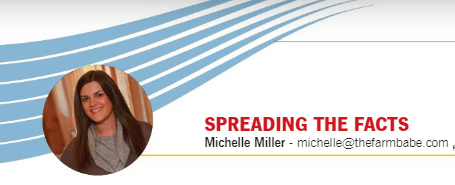Take a stroll down any grocery store aisle, and you’ll notice a ton of labels. If you’re unsure what to purchase, these labels can make your head spin! Are they that important, and is it worth buying these more expensive food items? Let’s break down what they actually mean – as the top five misleading food labels:
- Non-GMO. What is a GMO? Ask the average person, and they likely won’t know what it is or “feel” like they might be bad because the media or “Non-GMO Project” told them they were. It’s true that the word “GMO” may sound like it’s some weird creepy mutation that you shouldn’t put in your body, but the reality is that GMOs are actually a good thing! GMOs can save crops from disease, help crops be more nutritious, drought tolerant, and more. This leads to point #2…
- Non-GMO Project Verified. If you see that butterfly logo, put it back on the shelf! While GMOs can do great things for farmers and the planet, the Non-GMO Project is one of the most significant sources of disinformation out there, and we should vote with our dollars and just not let them have our money. Support farmers, support science, and do not purchase a label that supports this false, deceptive narrative. Also, want to play a fun game? Go to the Non-GMO Project Verified’s Facebook page, say something good about GMOs, and see how long it takes you to get blocked and banned. Facts and truth are no friend to this label, that point-blank lies to the end consumer. And also, food modifications have been happening for thousands of years… none of our food is “natural,” and it’s all been modified at some point.
- Organic. Many people purchase organic foods because they are led to believe they don’t use pesticides, but this couldn’t be further from the truth! They don’t use “synthetic” pesticides, and that’s the keyword here, synthetic. Thousands of OMRI chemicals and crop protection products are approved for organic farming and are just naturally derived. But “natural” means nothing in terms of toxicity, so again it’s a bit of a misleading label. Pesticide use boils down to region, pest pressure, farm size, and more. For example, the big Midwest grain farms may not spray anything on organic, but where I live in Florida, organic fruits and veggies may need to be sprayed weekly. Fresh market produce in a tropical climate has much higher pest pressure and is more susceptible to disease and other issues so that consumers wouldn’t purchase the ugly, misshapen foods. Don’t get me wrong – the original premise behind organic had some solid science and reasons behind it. But the good news is that once that science was discovered (soil health and biology principles, for example), it was adopted by all different types of farmers, both organic and non-organic alike.
- Hormone and Steroid-Free Chicken. Did you know there’s actually no such thing as added hormones or steroids in chicken or pork? Nope! They haven’t been used since the 1950s. Chickens (and pigs) are larger today just due to basic science! Genetics, breed, better and more comfortable housing, feed efficiencies and more have allowed modern chicken farms to produce bigger, better, more flavorful meats where that rate of gain is solid science. We can feed the masses with much fewer resources than we did decades ago. The next time you see a label on these packages that say “no added hormones or steroids,” read the fine print: it will also say, “*federal law strictly prohibits the use of hormones and steroids.” It’s not even a thing. Just a marketing ploy to try and get more money out of the consumer.
- Antibiotic Free. All meat and dairy products are antibiotic free! Although antibiotic use has substantially declined in recent years, antibiotics still may play an essential role in animal health. The good news is that if antibiotics are used, that animal must go through a withdrawal period before it can legally go to market to ensure those medicine residues are no longer in the meat, which means that once again, the food corporations are using meaningless or misleading language to try and sell you something.
Trust is vital in agriculture and the food supply. If you ever have questions about what’s actually done on larger-scale conventional farms, ask the real people who do it for a living on the large-scale conventional farms! University Extension agents affiliated with animal science and plant breeding programs are also excellent sources of info. Farmers are the experts on farming, but unfortunately, the government and big food corporations are not always leading us to the truth about the food supply. The real truth? Modern agriculture is backed by solid science with a brilliant story to tell, and every day the industry is improving more and more.





